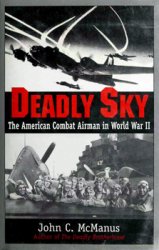On December 2, 2009, as polls revealed growing dissatisfaction with the wars in Iraq and Afghanistan, President Barack Obama promised to withdraw all U. S. troops from Iraq within two years. But he announced that he would send an additional 30,000 troops to Afghanistan, where the situation had deteriorated.
"I do not make this decision lightly," he said, noting that he had opposed the war in Iraq. But Afghanistan, he insisted, was different. It had been the home of the Al Qaeda terrorists who attacked on September 11, 2001.
By sending more troops to Afghanistan now, Obama believed the military would defeat Al Qaeda more quickly. "There are those who suggest that Afghanistan is another Vietnam," he conceded. "I believe this argument depends on a false reading of history."
Because nothing in the past is exactly like anything else, all historical analogies are flawed. But the history of Vietnam suggests that once soldiers have fought and died for a cause, the task of getting out of a war—short of victory—is not an easy one.
¦ Robert McCall's depiction of an American attack on Moscow appeared as the cover of the Saturday Evening Post on October 13, 1962. Within two weeks, the United States and the Soviet Union would be at the brink of a nuclear war.
Just before President John F. Kennedy sent the first American troops to Vietnam in 1961, he confided doubts to an aide: "The troops will march in; the bands will play; the crowds will cheer. . . Then we will be told we have to send more troops. It's like taking a drink. The effect wears off, and you have to take another."
By 1963, despite the infusion of some 16,000 U. S. soldiers, South Vietnam was crumbling. In 1965, with a communist takeover imminent, Lyndon Johnson, Kennedy's successor, increased U. S. troop levels to nearly a half million. Yet victory remained elusive. In 1969, his successor,
Richard M. Nixon, promised to bring an honorable peace to Vietnam; but American troops remained for another four years.
The long war in Vietnam exposed deep fissures within the nation. Racial divisions widened into gaping holes. Student protests drew violent responses. Nixon's heated rhetoric and illegal campaign tactics heightened tensions. And less than a year after he resigned, communist North Vietnam completed its conquest of South Vietnam. For the United States, the war ended in failure. ¦




 World History
World History









